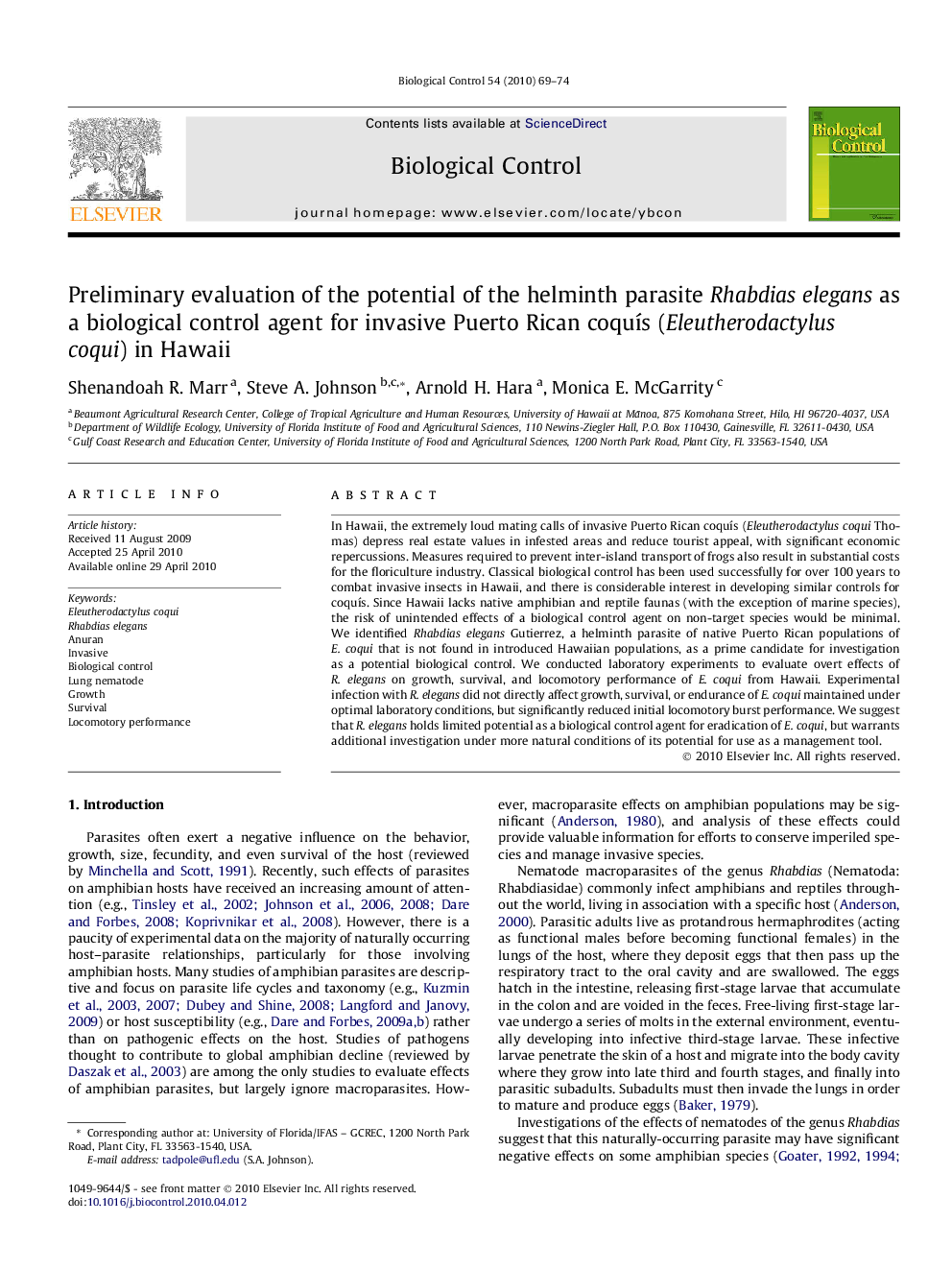| Article ID | Journal | Published Year | Pages | File Type |
|---|---|---|---|---|
| 4504344 | Biological Control | 2010 | 6 Pages |
In Hawaii, the extremely loud mating calls of invasive Puerto Rican coquís (Eleutherodactylus coqui Thomas) depress real estate values in infested areas and reduce tourist appeal, with significant economic repercussions. Measures required to prevent inter-island transport of frogs also result in substantial costs for the floriculture industry. Classical biological control has been used successfully for over 100 years to combat invasive insects in Hawaii, and there is considerable interest in developing similar controls for coquís. Since Hawaii lacks native amphibian and reptile faunas (with the exception of marine species), the risk of unintended effects of a biological control agent on non-target species would be minimal. We identified Rhabdias elegans Gutierrez, a helminth parasite of native Puerto Rican populations of E. coqui that is not found in introduced Hawaiian populations, as a prime candidate for investigation as a potential biological control. We conducted laboratory experiments to evaluate overt effects of R. elegans on growth, survival, and locomotory performance of E. coqui from Hawaii. Experimental infection with R. elegans did not directly affect growth, survival, or endurance of E. coqui maintained under optimal laboratory conditions, but significantly reduced initial locomotory burst performance. We suggest that R. elegans holds limited potential as a biological control agent for eradication of E. coqui, but warrants additional investigation under more natural conditions of its potential for use as a management tool.
